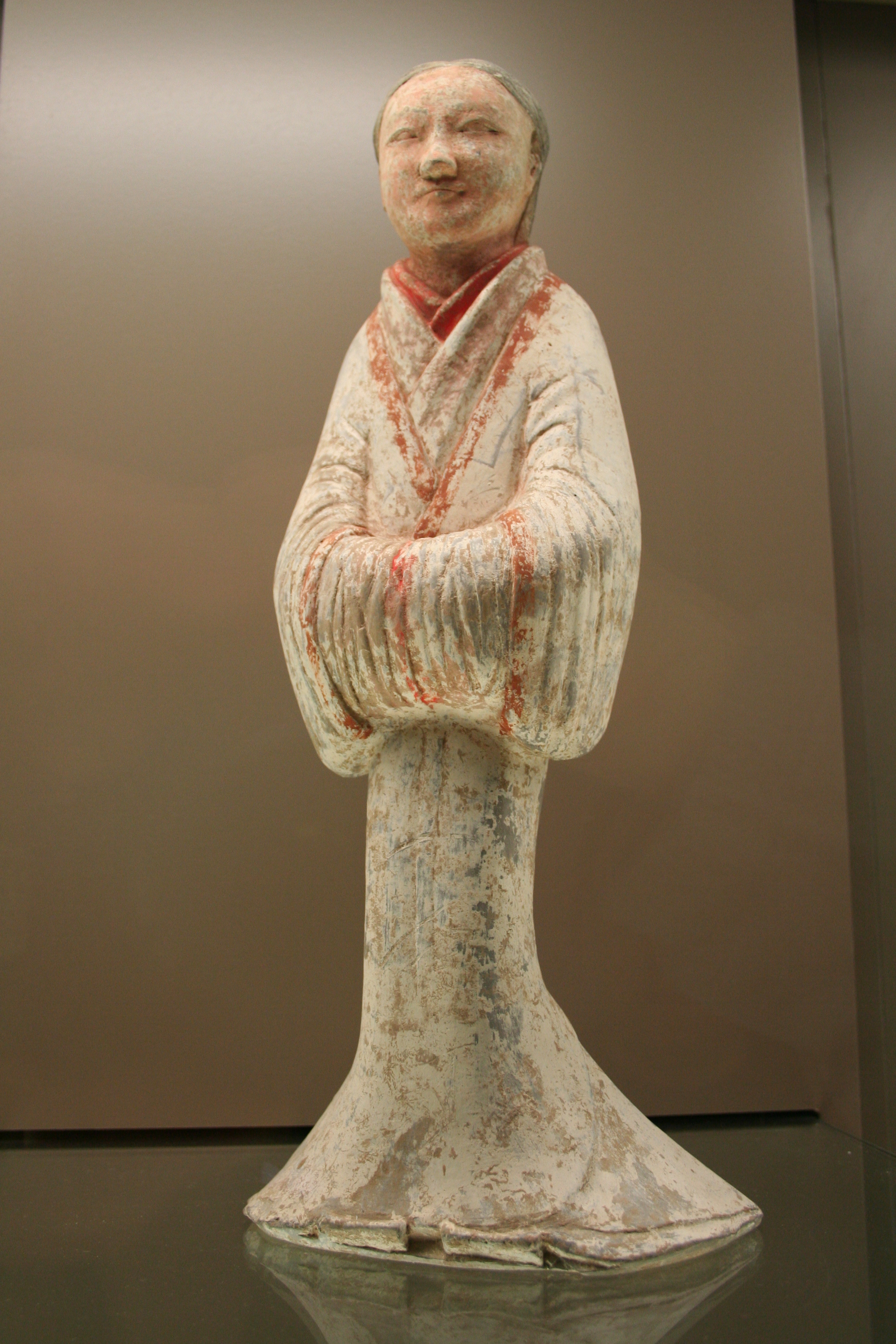Mingqi on:
[Wikipedia]
[Google]
[Amazon]
 Mingqi (Chinese: or , p ''míngqì''), sometimes referred to as "spirit objects" or "vessels for ghosts", are Chinese burial goods. They included daily utensils, musical instruments,
Mingqi (Chinese: or , p ''míngqì''), sometimes referred to as "spirit objects" or "vessels for ghosts", are Chinese burial goods. They included daily utensils, musical instruments,
in ancient Chinese religion
 Mingqi (Chinese: or , p ''míngqì''), sometimes referred to as "spirit objects" or "vessels for ghosts", are Chinese burial goods. They included daily utensils, musical instruments,
Mingqi (Chinese: or , p ''míngqì''), sometimes referred to as "spirit objects" or "vessels for ghosts", are Chinese burial goods. They included daily utensils, musical instruments, weapon
A weapon, arm or armament is any implement or device that can be used to deter, threaten, inflict physical damage, harm, or kill. Weapons are used to increase the efficacy and efficiency of activities such as hunting, crime, law enforcement, ...
s, armor
Armour (British English) or armor (American English; see spelling differences) is a covering used to protect an object, individual, or vehicle from physical injury or damage, especially direct contact weapons or projectiles during combat, or f ...
, and intimate objects such as the deceased's cap, can and bamboo
Bamboos are a diverse group of evergreen perennial flowering plants making up the subfamily Bambusoideae of the grass family Poaceae. Giant bamboos are the largest members of the grass family. The origin of the word "bamboo" is uncertain, ...
mat. Mingqi also could include figurine
A figurine (a diminutive form of the word ''figure'') or statuette is a small, three-dimensional sculpture that represents a human, deity or animal, or, in practice, a pair or small group of them. Figurines have been made in many media, with clay ...
s, spiritual representations rather than real people, of soldiers, servants, musicians, polo riders, houses, unicorns and horses. Extensive use of mingqi during certain periods may either have been an attempt to preserve the image of ritual propriety by cutting costs, or it may have a new idea separating the realm of the dead from that of the living.
Purpose
Mingqi served to provide the deceased with necessities and comforts in the afterlife. The deceased person's '' po'' was said to remain in the realm of the tomb while the ''hun'' ascended to heaven. To appease and make worthwhile the deceased's ''po'', mingqi claimed relevant and liked by the deceased were placed in his tomb. Upon placing mingqi in the tomb, humans, according to the Confucian ideal, were harmonizing the cosmos by striking a balance for the comfort of the deceased who is also comforted in heaven. The more ''mingqi'' one held to have the wealthier and strong social status one may have.https://www.lotusgallery.co.uk/antiques/p/tang-female-figurine-riderSee also
* Joss offerings, also referred to as ''mingqi'' *Hell money
Hell banknotes in Thailand resembling United States Dollar, and Thai Baht banknotes">Thai_Baht.html" ;"title="United States Dollar, and Thai Baht">United States Dollar, and Thai Baht banknotes
Hell money () is a modernized form of joss paper p ...
* ''hun'' and ''po'', components of the spiritin ancient Chinese religion
References
{{commons category, Mingqi Death customs Chinese culture